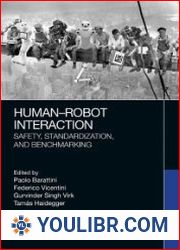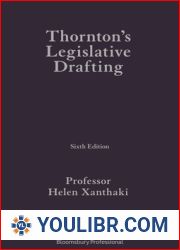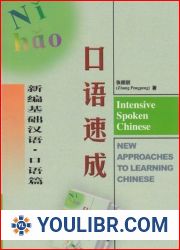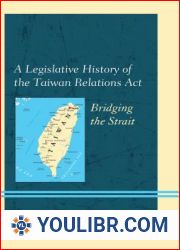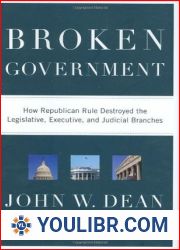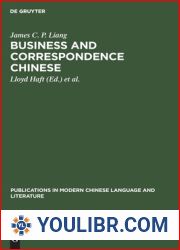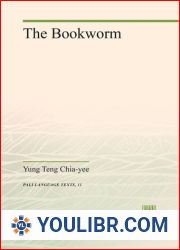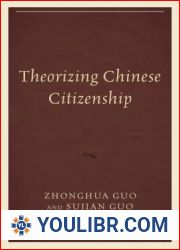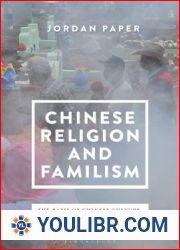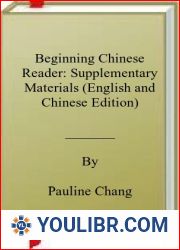
BOOKS - On the Standardization of Chinese Legislative Language

On the Standardization of Chinese Legislative Language
Author: Xiaobo Dong
Year: May 21, 2023
Format: PDF
File size: PDF 1.1 MB
Language: English
Year: May 21, 2023
Format: PDF
File size: PDF 1.1 MB
Language: English
Book Review: On the Standardization of Chinese Legislative Language Introduction: In an era of rapid technological advancements, it is crucial to understand the evolution of technology and its impact on modern knowledge. The book "On the Standardization of Chinese Legislative Language" presents a groundbreaking approach to tackling the nonstandardization phenomenon in Chinese legislative language, unveiling its underlying causes and adverse effects, and providing potential principles, strategies, and methods to address these issues. Divided into three parts, this book offers a comprehensive study on the standardization of Chinese legislative language, enabling legal practitioners, jurists, law students, and nonexperts to gain a deeper understanding of the mechanisms and processes of legislation. Part I: Fuzziness of Language The first part of the book addresses the fuzziness of language, discussing both the active and negative influences thereof on legislation. The author highlights the importance of understanding the nuances of language and its role in shaping our perceptions and interpretations of the world around us. This section provides a thorough examination of the complexities of language, emphasizing the need for a personal paradigm to perceive the technological process of developing modern knowledge as the basis for human survival and the unity of people in a warring state. Part II: Nonstandardization Phenomenon In the second part of the book, the author approaches the nonstandardization phenomenon in Chinese legislative language from the perspective of philosophy of law. This section delves into the underlying causes of nonstandardization, exploring how it affects the development of laws and regulations.
О стандартизации китайского законодательного языка Введение: В эпоху быстрого технологического прогресса крайне важно понимать эволюцию технологий и их влияние на современные знания. В книге «On the Standardization of Chinese gislative Language» («О стандартизации китайского законодательного языка») представлен новаторский подход к борьбе с явлением нестандартизации в китайском законодательном языке, раскрываются его основные причины и неблагоприятные последствия, а также предлагаются потенциальные принципы, стратегии и методы для решения этих проблем. Разделенная на три части, эта книга предлагает всестороннее исследование по стандартизации китайского законодательного языка, позволяя практикующим юристам, юристам, студентам юридических факультетов и не экспертам получить более глубокое понимание механизмов и процессов законодательства. Часть I: Нечеткость языка В первой части книги рассматривается нечеткость языка, обсуждается как активное, так и негативное влияние его на законодательство. Автор подчеркивает важность понимания нюансов языка и его роли в формировании наших представлений и интерпретаций окружающего мира. В этом разделе даётся тщательный анализ сложностей языка, подчёркивается необходимость личностной парадигмы для восприятия технологического процесса развития современного знания как основы выживания человека и единства людей в воюющем государстве. Часть II: Феномен нестандартизации Во второй части книги автор подходит к феномену нестандартизации в китайском законодательном языке с позиции философии права. Этот раздел углубляется в основные причины нестандартизации, исследуя, как она влияет на разработку законов и правил.
À propos de la normalisation du langage législatif chinois Introduction : À l'ère du progrès technologique rapide, il est essentiel de comprendre l'évolution des technologies et leur impact sur les connaissances modernes. livre « On the Standardization of Chinese gislative Language » présente une approche novatrice pour lutter contre le phénomène de la non-normalisation dans la langue chinoise, en exposant les causes sous-jacentes et les effets néfastes, ainsi que les principes, stratégies et méthodes possibles pour résoudre ces problèmes. Divisé en trois parties, ce livre propose une étude complète sur la normalisation de la langue législative chinoise, permettant aux praticiens du droit, aux avocats, aux étudiants en droit et aux non-experts d'acquérir une meilleure compréhension des mécanismes et des processus législatifs. Partie I : Manque de clarté linguistique La première partie du livre traite du manque de clarté linguistique et traite à la fois de ses effets actifs et négatifs sur la législation. L'auteur souligne l'importance de comprendre les nuances du langage et son rôle dans la formation de nos perceptions et interprétations du monde qui nous entoure. Cette section présente une analyse approfondie de la complexité de la langue et souligne la nécessité d'un paradigme personnel pour percevoir le processus technologique du développement de la connaissance moderne comme la base de la survie humaine et de l'unité des gens dans un État en guerre. Partie II : phénomène de la non-normalisation Dans la deuxième partie du livre, l'auteur aborde le phénomène de la non-normalisation dans la langue législative chinoise à partir de la philosophie du droit. Cette section explore les principales raisons de la non-standardisation en examinant comment elle affecte l'élaboration des lois et des règlements.
Sobre la estandarización del lenguaje legislativo chino Introducción: En una era de rápido progreso tecnológico, es fundamental comprender la evolución de la tecnología y su impacto en el conocimiento moderno. libro «On the Standardization of Chinese gislative Language» («Sobre la estandarización del lenguaje legislativo chino») presenta un enfoque innovador para combatir el fenómeno de la no estandarización en el lenguaje legislativo chino, revela sus principales causas y efectos adversos, y sugiere principios, estrategias y métodos potenciales para abordar estos problemas. Dividido en tres partes, este libro ofrece un amplio estudio sobre la estandarización del idioma legislativo chino, lo que permite a los profesionales del derecho, abogados, estudiantes de derecho y no expertos obtener una mejor comprensión de los mecanismos y procesos de la legislación. Parte I: La ambigüedad del lenguaje La primera parte del libro aborda la ambigüedad del lenguaje, discutiendo tanto el efecto activo como negativo del mismo en la legislación. autor subraya la importancia de entender los matices del lenguaje y su papel en la formación de nuestras percepciones e interpretaciones del mundo que nos rodea. Esta sección proporciona un análisis exhaustivo de las complejidades del lenguaje, enfatiza la necesidad de un paradigma personal para percibir el proceso tecnológico del desarrollo del conocimiento moderno como la base de la supervivencia humana y la unidad de las personas en un estado en guerra. Parte II: fenómeno de la no estandartización En la segunda parte del libro, el autor aborda el fenómeno de la no estandartización en el lenguaje legislativo chino desde una posición de filosofía del derecho. Este apartado profundiza en las principales causas de la no estandartización, investigando cómo afecta a la elaboración de leyes y reglamentos.
Sobre a normalização do idioma legislativo chinês Introdução: Numa era de progresso tecnológico rápido, é fundamental compreender a evolução da tecnologia e seus efeitos sobre o conhecimento moderno. O livro «On the Standardization of Chinese gislative Language» apresenta uma abordagem inovadora para lidar com o fenômeno da não convencionalidade na língua legislativa chinesa, expõe suas principais causas e efeitos adversos, além de potenciais princípios, estratégias e métodos para lidar com esses problemas. Dividido em três partes, este livro oferece uma pesquisa abrangente sobre a normalização do idioma legislativo chinês, permitindo que advogados, advogados, estudantes de direito e não especialistas tenham uma melhor compreensão dos mecanismos e processos legislativos. Parte I: Imprecisão da língua A primeira parte do livro aborda a profanidade da língua e discute os efeitos ativos e negativos sobre a legislação. O autor ressalta a importância de entender as nuances da linguagem e o seu papel na formulação de nossas percepções e interpretações do mundo ao redor. Esta seção fornece uma análise cuidadosa das complexidades da linguagem, destacando a necessidade de um paradigma pessoal para a percepção do processo tecnológico de desenvolvimento do conhecimento moderno como base para a sobrevivência humana e a unidade das pessoas num estado em guerra. Parte II: Fenômeno da não convencionalidade Na segunda parte do livro, o autor aborda o fenômeno da não convencionalidade na língua legislativa chinesa com a filosofia do direito. Esta seção é aprofundada nas principais causas da não convencionalidade, pesquisando como ela afeta a elaboração de leis e regulamentos.
Sulla standardizzazione del cinese Introduzione: In un'era di rapido progresso tecnologico, è fondamentale comprendere l'evoluzione della tecnologia e il loro impatto sulle conoscenze moderne. Il libro «On the Standardization of Chinese gislative Language» presenta un approccio innovativo per contrastare il fenomeno della non convenzione nella lingua cinese, ne rivela le cause principali e gli effetti negativi e propone potenziali principi, strategie e metodi per affrontare questi problemi. Suddiviso in tre parti, questo libro offre una ricerca completa sulla standardizzazione della lingua legislativa cinese, permettendo agli avvocati, agli avvocati, agli studenti di giurisprudenza e ai non esperti di acquisire una migliore comprensione dei meccanismi e dei processi legislativi. Parte I: L'imprecisione della lingua Nella prima parte del libro si considera l'impreziosità della lingua e si discute sia l'impatto attivo che negativo della sua legislazione. L'autore sottolinea l'importanza di comprendere le sfumature del linguaggio e il suo ruolo nella formazione delle nostre percezioni e interpretazioni del mondo circostante. Questa sezione fornisce un'analisi approfondita delle complessità del linguaggio, sottolinea la necessità di un paradigma personale per la percezione del processo tecnologico dello sviluppo della conoscenza moderna come base della sopravvivenza dell'uomo e dell'unità delle persone in uno stato in guerra. Parte II: Fenomeno della non convenzione Nella seconda parte del libro, l'autore si avvicina al fenomeno della non convenzione nella lingua legislativa cinese dalla filosofia del diritto. Questa sezione si approfondisce sulle cause principali della non convenzione, indagando su come influisce sullo sviluppo di leggi e regolamenti.
Über die Standardisierung der chinesischen Rechtssprache Einleitung: In einer Zeit des raschen technologischen Fortschritts ist es entscheidend, die Entwicklung der Technologie und ihre Auswirkungen auf das moderne Wissen zu verstehen. Das Buch On the Standardization of Chinese gislative Language stellt einen innovativen Ansatz zur Bekämpfung des Phänomens der Nicht-Standardisierung in der chinesischen Rechtssprache vor, zeigt seine Hauptursachen und nachteiligen Auswirkungen auf und schlägt mögliche Prinzipien, Strategien und Methoden vor, um diese Probleme anzugehen. Dieses Buch ist in drei Teile unterteilt und bietet eine umfassende Studie zur Standardisierung der chinesischen Rechtssprache, die es Anwälten, Anwälten, Jurastudenten und Nicht-Experten ermöglicht, ein tieferes Verständnis der Mechanismen und Prozesse der Gesetzgebung zu erlangen. Teil I: Die Unschärfe der Sprache Der erste Teil des Buches untersucht die Unschärfe der Sprache und diskutiert sowohl die aktiven als auch die negativen Auswirkungen auf die Gesetzgebung. Der Autor betont die Bedeutung des Verständnisses der Nuancen der Sprache und ihrer Rolle bei der Gestaltung unserer Wahrnehmungen und Interpretationen der umgebenden Welt. Dieser Abschnitt gibt eine gründliche Analyse der Komplexität der Sprache, betont die Notwendigkeit eines persönlichen Paradigmas für die Wahrnehmung des technologischen Prozesses der Entwicklung des modernen Wissens als Grundlage des menschlichen Überlebens und der Einheit der Menschen in einem kriegführenden Staat. Teil II: Das Phänomen der Nicht-Standardisierung Im zweiten Teil des Buches nähert sich der Autor dem Phänomen der Nicht-Standardisierung in der chinesischen Rechtssprache aus der Perspektive der Rechtsphilosophie. Dieser Abschnitt befasst sich mit den Hauptursachen der Nicht-Standardisierung und untersucht, wie sie die Entwicklung von Gesetzen und Vorschriften beeinflusst.
W sprawie normalizacji chińskiego języka ustawodawczego Wprowadzenie: W dobie szybkiego postępu technologicznego kluczowe znaczenie ma zrozumienie rozwoju technologii i jej wpływu na nowoczesną wiedzę. Książka „On the Standardization of Chinese gislative Language” przedstawia innowacyjne podejście do zwalczania zjawiska niestandardowej normalizacji w chińskim języku ustawodawczym, ujawnia jego główne przyczyny i negatywne konsekwencje oraz proponuje potencjalne zasady, strategie i metody rozwiązywania tych problemów. Ta książka, podzielona na trzy części, oferuje kompleksowe badanie na temat standaryzacji chińskiego języka legislacyjnego, pozwalając praktykującym prawnikom, prawnikom, studentom prawa i osobom niebędącym ekspertami na uzyskanie głębszego zrozumienia mechanizmów i procesów legislacyjnych. Część I: Język Fuzziness Pierwsza część książki odnosi się do mglistości języka, omawiając zarówno aktywny, jak i negatywny wpływ tego języka na prawodawstwo. Autor podkreśla znaczenie zrozumienia niuansów języka i jego roli w kształtowaniu naszych reprezentacji i interpretacji otaczającego nas świata. Sekcja ta zawiera dokładną analizę złożoności języka, podkreśla potrzebę osobistego paradygmatu postrzegania technologicznego procesu rozwoju nowoczesnej wiedzy jako podstawy ludzkiego przetrwania i jedności ludzi w stanie wojującym. Część II: Zjawisko niestandaryzacji W drugiej części książki autor podchodzi do zjawiska niestandaryzacji w chińskim języku ustawodawczym z punktu widzenia filozofii prawa. Sekcja ta wpisuje się w główne przyczyny niestandardowej normalizacji, badając, w jaki sposób wpływa na rozwój przepisów ustawowych i wykonawczych.
על תקן מבוא לשפה המחוקקת הסינית: בעידן של התקדמות טכנולוגית מהירה, חיוני להבין את התפתחות הטכנולוגיה ואת השפעתה על הידע המודרני. הספר ”On the Standardization of nese Expection Language” מציג גישה חדשנית למאבק בתופעה של אי-סטנדרטיזציה בשפה החקיקתית הסינית, חושף את הסיבות העיקריות שלה ואת ההשלכות השליליות שלה, ומציע עקרונות, אסטרטגיות ושיטות אפשריות לפתרון בעיות אלה. הספר מחולק לשלושה חלקים, ומציע מחקר מקיף על התקנון של השפה החקיקתית הסינית, המאפשר לעריכת דין, עורכי דין, סטודנטים למשפטים ולא-מומחים חלק I: Flash Fauscess החלק הראשון של הספר עוסק בערפול השפה, דן הן בהשפעה האקטיבית והן בהשפעה השלילית שלה על חקיקה. המחבר מדגיש את החשיבות של הבנת הניואנסים של השפה ותפקידה בעיצוב הייצוגים והפרשנויות שלנו על העולם הסובב אותנו. סעיף זה מעניק ניתוח מעמיק של מורכבות השפה, מדגיש את הצורך בפרדיגמה אישית לתפיסת התהליך הטכנולוגי של התפתחות הידע המודרני כבסיס להישרדות האדם ולאחדות האנשים במצב לוחמני. חלק II: התופעה של אי-סטנדרטיזציה בחלק השני של הספר, המחבר מתקרב לתופעה של אי-סטנדרטיזציה בשפה החקיקתית הסינית מנקודת המבט של הפילוסופיה של החוק. סעיף זה מתעמק בסיבות העיקריות לאי-תקנון, ובוחן כיצד הוא משפיע על התפתחות החוקים והתקנות.''
Çin Yasama Dilinin Standardizasyonu Üzerine Giriş: Hızlı teknolojik ilerleme çağında, teknolojinin evrimini ve modern bilgi üzerindeki etkisini anlamak çok önemlidir. "On the Standardization of Chinese gislative Language" (Çin Yasama Dilinin Standardizasyonu Üzerine) adlı kitap, Çin yasama dilinde standardizasyonsuzluk olgusuyla mücadelede yenilikçi bir yaklaşım sunuyor, ana nedenlerini ve olumsuz sonuçlarını ortaya koyuyor ve bu sorunları çözmek için potansiyel ilkeler, stratejiler ve yöntemler öneriyor. Üç bölüme ayrılmış olan bu kitap, Çin yasama dilinin standardizasyonu üzerine kapsamlı bir çalışma sunarak, avukatların, avukatların, hukuk öğrencilerinin ve uzman olmayanların yasama mekanizmaları ve süreçleri hakkında daha derin bir anlayış kazanmalarını sağlar. Bölüm I: Dil Bulanıklığı Kitabın ilk bölümü dilin bulanıklığını ele alıyor ve dilin mevzuat üzerindeki hem aktif hem de olumsuz etkisini tartışıyor. Yazar, dilin nüanslarını ve çevremizdeki dünyanın temsillerini ve yorumlarını şekillendirmedeki rolünü anlamanın önemini vurgulamaktadır. Bu bölüm, dilin karmaşıklığının kapsamlı bir analizini verir, modern bilginin gelişiminin teknolojik sürecinin algılanması için kişisel bir paradigmaya duyulan ihtiyacı vurgular ve insanın hayatta kalması ve savaşan bir durumda insanların birliği için temel oluşturur. Bölüm II: Standardizasyonsuzluk olgusu Kitabın ikinci bölümünde yazar, hukuk felsefesi açısından Çin yasama dilinde standardizasyonsuzluk olgusuna yaklaşmaktadır. Bu bölüm, standartlaşmamanın temel nedenlerini inceleyerek, yasaların ve düzenlemelerin gelişimini nasıl etkilediğini incelemektedir.
حول توحيد اللغة التشريعية الصينية مقدمة: في عصر التقدم التكنولوجي السريع، من الأهمية بمكان فهم تطور التكنولوجيا وتأثيرها على المعرفة الحديثة. يقدم كتاب «توحيد اللغة التشريعية الصينية» نهجا مبتكرا لمكافحة ظاهرة عدم التوحيد في اللغة التشريعية الصينية، ويكشف عن أسبابها الرئيسية وعواقبها السلبية، ويقترح مبادئ واستراتيجيات وأساليب محتملة لحل هذه المشاكل. يقدم هذا الكتاب، الذي ينقسم إلى ثلاثة أجزاء، دراسة شاملة حول توحيد اللغة التشريعية الصينية، مما يسمح للمحامين الممارسين والمحامين وطلاب القانون وغير الخبراء باكتساب فهم أعمق لآليات وعمليات التشريع. الجزء الأول: غموض اللغة يتناول الجزء الأول من الكتاب غموض اللغة، ويناقش التأثير النشط والسلبي لها على التشريعات. يؤكد المؤلف على أهمية فهم الفروق الدقيقة في اللغة ودورها في تشكيل تمثيلاتنا وتفسيراتنا للعالم من حولنا. يقدم هذا الفرع تحليلاً شاملاً لتعقيدات اللغة، ويؤكد على الحاجة إلى نموذج شخصي لتصور العملية التكنولوجية لتطور المعرفة الحديثة كأساس لبقاء الإنسان ووحدة الناس في دولة متحاربة. في الجزء الثاني من الكتاب، تناول المؤلف ظاهرة عدم التوحيد في اللغة التشريعية الصينية من وجهة نظر فلسفة القانون. يتناول هذا الفرع الأسباب الرئيسية لعدم التوحيد، ويبحث كيفية تأثيره على تطوير القوانين واللوائح.
중국 입법 언어 소개의 표준화: 빠른 기술 발전의 시대에 기술의 진화와 현대 지식에 미치는 영향을 이해하는 것이 중요합니다. "중국 입법 언어의 표준화에 관한" 책은 중국 입법 언어의 비 표준화 현상과 싸우는 혁신적인 접근 방식을 제시하고 주요 원인과 부정적인 결과를 밝히며 이러한 문제를 해결하기위한 잠재적 원칙, 전략 및 방법을 제안합니다. 이 책은 세 부분으로 나뉘어 중국 입법 언어의 표준화에 대한 포괄적 인 연구를 제공하여 변호사, 변호사, 법률 학생 및 비전문가가 입법 메커니즘과 프로세스에 대해 더 깊이 이해할 수 있도록합니다. 1 부: 언어 Fuzziness 이 책의 첫 번째 부분은 언어의 흐릿함을 다루며 입법에 미치는 영향과 부정적인 영향을 모두 논의합니다. 저자는 언어의 뉘앙스를 이해하는 것의 중요성과 주변 세계에 대한 우리의 표현과 해석을 형성하는 역할을 강조합니다. 이 섹션은 언어의 복잡성에 대한 철저한 분석을 제공하며, 인간 생존의 기초와 전쟁 상태에있는 사람들의 통일성으로서 현대 지식 개발의 기술 과정에 대한 인식을위한 개인적인 패러다임의 필요성을 강조합니다. 제 2 부: 비 표준화 현상 책의 두 번째 부분에서 저자는 법철학의 관점에서 중국 입법 언어의 비 표준화 현상에 접근합니다. 이 섹션은 비 표준화의 주요 이유를 조사하여 법률 및 규정 개발에 어떤 영향을 미치는지 조사합니다.
中国の立法言語の標準化についてはじめに:急速な技術進歩の時代には、技術の進化と現代の知識への影響を理解することが重要です。「中国の立法言語の標準化について」は、中国の立法言語における非標準化の現象と闘うための革新的なアプローチを提示し、その主な原因と悪影響を明らかにし、これらの問題を解決するための潜在的な原則、戦略および方法を提案します。この本は3つの部分に分かれており、中国の立法言語の標準化に関する包括的な研究を提供しており、弁護士、弁護士、法学生、非専門家を実践し、法律の仕組みとプロセスをより深く理解することができます。Part I: Language Fuzziness本書の最初の部分は、言語の曖昧さに対処し、それが法律に及ぼす活発な影響と悪影響の両方について議論しています。著者は、私たちの周りの世界の表現と解釈を形作る上で、言語のニュアンスとその役割を理解することの重要性を強調しています。このセクションでは、言語の複雑さを徹底的に分析し、現代の知識の発展の技術プロセスを人間の生存の基礎として認識し、戦争状態にある人々の団結のための個人的なパラダイムの必要性を強調します。第二部:非標準化現象第二部では、法律哲学の観点から、中国の立法言語における非標準化現象にアプローチしている。このセクションでは、非標準化の主な理由を詳しく説明し、それが法律や規制の発展にどのように影響するかを調べます。
關於中國立法語言標準化簡介:在技術快速發展的時代,了解技術的發展及其對現代知識的影響至關重要。《中國法律語言標準化》一書介紹了打擊中國立法中非標準化現象的創新方法,揭示了其根本原因和不利影響,並提出了解決這些問題的潛在原則,策略和技術。本書分為三個部分,對中國立法語言的標準化進行了全面研究,使執業律師,律師,法律系學生和非專家可以更好地了解立法機制和過程。第一部分:語言模糊性本書第一部分論述了語言模糊性,論述了語言模糊對立法的積極和消極影響。作者強調了解語言的細微差別及其在塑造我們對周圍世界的觀念和解釋中的作用的重要性。本節詳細分析了語言的復雜性,強調了個人範式的必要性,以將現代知識的技術發展過程視為人類生存和交戰國人民團結的基礎。第二部分:非標準化現象在第二部分中,從法律哲學的角度探討了中國立法中的非標準化現象。本節深入探討非標準化的根本原因,探討其如何影響法律和法規的制定。















